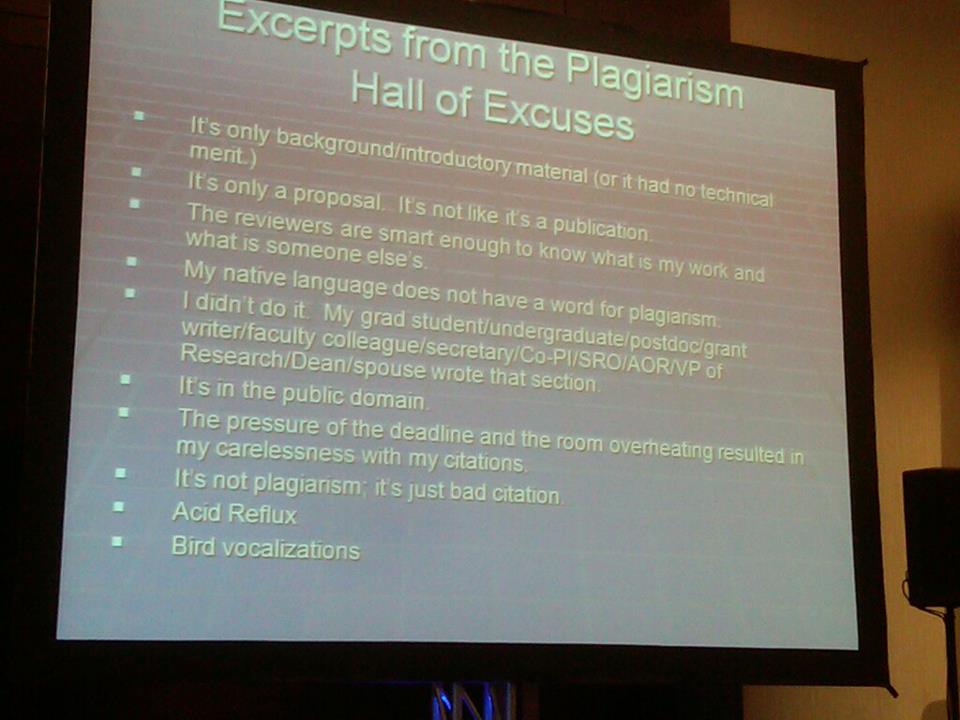
After more than four years of doing, well, not much, evidently, Scientific Reports — a Springer Nature title — has retracted a paper which plagiarized from the bachelor’s thesis of a Hungarian mathematician.
The article, “Modified box dimension and average weighted receiving time on the weighted fractal networks,” was purportedly written by a group of researchers from China led by Meifeng Dai, of the Nonlinear Scientific Research Center at Jiangsu University.
Except it wasn’t. As the retraction notice states:
The Editors have retracted this Article because significant portions of the text and equations were taken from Roland Molontay’s BSc thesis without attribution.
The following parts of the paper are copied verbatim or are adapted from those appearing in the thesis: the definition of dB and preceding and subsequent sentences; Definition 3.2; Proof of Lemma 3.4; Lemma 3.5; Proof of Lemma 3.5; Lemma 3.6; Proof of Lemma 3.6; Equation 6; Lemma 3.7; Proof of Lemma 3.7; Lemma 3.8; Equation 8; Proof of Theorem 3.3.
The authors do not agree to the retraction of the Article.
According to the journal, the article was submitted on Oct. 15, 2015, accepted about a month later and published Dec. 15, 2015. A week later, the fun started for Molontay, who gave us a rundown of what happened after he’d uploaded his thesis in 2013 to his personal home page on the website of Budapest University of Technology and Economics:
I suspect – of course I cannot be sure but that is the most feasible solution that I can see – that the authors found my thesis on Google Scholar, since Google Scholar indexes the bme.hu domain and found my thesis online. I suspect that they first studied the journal article of the supervisors of my thesis (Júlia Komjáthy and Károly Simon) and they looked at the citing works on Google Scholar. Since in my thesis I investigate a model that was introduced by Komjáthy and Simon I obviously cite their work and thus the authors could have found my thesis among the citing works on Google Scholar. …
My supervisor (Károly Simon) sent me the Scientific Reports paper on the 22nd of December, 2015 as an article that cites their previous paper and might be interesting for me based on the title … [A]t that time I was his first-year PhD student. As I glanced through the article I was shocked, it was crystal clear for me from the first sight that we face plagiarism. My feelings were mixed, of course it is annoying, on the other hand I was also proud that my BSc thesis is good enough to be published (unfortunately not under my name but still) in a very high-impact Nature subjournal. (I didn’t realize before that the results in my thesis are of publishable quality.)
Molontay said he alerted Simon and together they decided to report the theft:
I created a long list of evidences of the plagiarism and my supervisor reported the plagiarism to the editor on the 20th of January, 2016. The editor responded on the 5th of February that they were looking into the issue and will get back to us as soon as possible.
We inquired on the 5th of July, 2016 whether the journal came to a conclusion. The editor replied and told us that they are still waiting for the response of the authors. Later still in July, 2016 the editor wrote that they are still conferring with the editorial board and other colleagues but will get back to us as soon as possible.
After that, nothing. Well, unless you count the eight times the paper was cited, including once by a “highly cited paper,” according to Clarivate Analytics’ Web of Knowlege. More than two years elapsed, Molontay said, without word from the journal:
To tell the truth I almost forgot about the case and moved on but sometimes it came into my mind and in August, 2018 we contacted the editor again and asked what happened in the past two years. (I honestly don’t know what happened in that 2 years, I am not familiar with the editorial process but I understand that the decision making and reporting in such a sensitive case is a complicated and slow process.) The point is that the editor promised that they would look back into the issue. In February, 2019 the journal informed us that they plan to retract the paper but they asked us to keep it confidential.
And the rest is history, the retraction note was published a couple of days ago.
So that is the whole story. To tell the truth, I feel sorry for the authors since I can imagine that it must be difficult for them, on the other, it is unfortunately clearly cheating.
A spokesperson for Scientific Reports had this to say:
The editorial team at Scientific Reports is committed to carefully scrutinising any concerns that are raised about our papers, following an established procedure. This process involves consultation with the original authors and, where appropriate, we seek advice from independent peer reviewers and others. It can take time to undertake and report on issues brought to our attention and, in this instance, a combination of factors including, unfortunately, human error on our part meant that this process took longer than expected. We apologise to our readers for the delay in updating the scholarly record.
To which we say: ¯\_(ツ)_/¯
Like Retraction Watch? You can make a tax-deductible contribution to support our work, follow us on Twitter, like us on Facebook, add us to your RSS reader, or subscribe to our daily digest. If you find a retraction that’s not in our database, you can let us know here. For comments or feedback, email us at [email protected].
What if the supervisor steals the research of students and publish it in his/her own name without giving any credit to the students who were the original researchers?
Yes, that is a problem. See for example http://retractionwatch.com/2013/10/23/analyze-this-analytical-letters-retracts-chemistry-paper-for-authorship-misdirection/